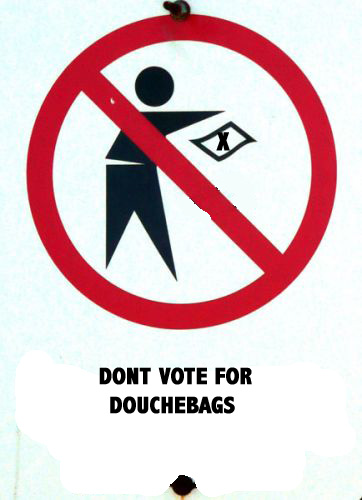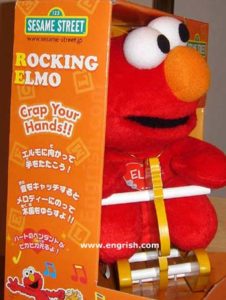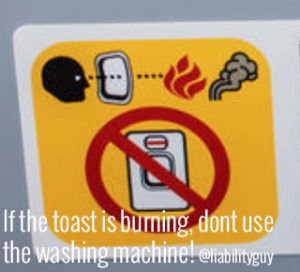It’s been almost 3 and a half years since I moved to Cape Town from Johannesburg. Read my earlier blog, the Jozifugee when you have some time.
A lot of people find it strange that I don my suit every Monday and head off work. Not because I’m going to work of course, nor because I still wear a suit (even though most of the profession I work in have gone for less formal attire). People find it strange because I live in Cape Town and have my office in Joburg. Whilst many South Africans file into the traffic on our congested roadways, I squeeze myself into a cigar tube with 200 strangers who are doing the same thing I am. We are the corporate equivalent of a migrant labour force.
So what’s it like, and why do I do it?
I’m a liability specialist by profession and they need those more in Jozi than they do in Cape Town. I see you scratching your heads trying to figure out how someone could be an expert in liability. I mean you’ve heard of asset managers. And assets represent the other, nicer side of the balance sheet right? I’m in insurance. The kind that companies buy to protect themselves against law suits. Kind of like a paper Barry Roux. I put it to you.
I digress. I do that a lot so bear with me. I moved to Cape Town to be with my wife. Well she wasn’t my wife at the time but my courtship plans were being seriously hampered by the 1400 kilometers between us. So I left my job in Jozi and set off to the republic of Cape Town. Regrettably my time in the mother city was marred by beautiful scenery, friendly people and a generally rewarding lifestyle. “Awful”, you must be thinking. “I could see why he’d want to start working in Johannesburg again.”
Jozi, the city of gold. The place I grew up in and have spent 91.5% of my life. Now I see you thinking, “What a precise fellow the LiabilityGuy is, he must be good at his job, lets place all our liability business with him.” The number is actually accurate as I spent the first 3 years of my life in the UK and then a year in Cape Town before the commute started. So guess you could say I’m working back in my home town.
“Hey what about the girl, the one you semigrated for?” you may ask. Well she’s a commuter too now. We both take the red eye to Jozi in the morning on Monday. We don’t however travel on the same plane. Joburg, being the brilliant, sprawling metropolis that it is, has two main airports and we travel to different ones. I recall when we first started doing it, the strange looks from fellow passengers as we kiss and say goodbye on the airside of the security checkpoint. A regular scene from Casablanca. Here’s lookin’ at you.
The advantage of spending unusually large helpings of time in an airport is that you get to know people. I’m on first name terms with some of the security people. I mean if a dude’s gonna feel you up twice a week, and he’s not your doctor, might as well introduce yourself. Speaking of airport security, here are some tips:

- Make sure you put all your metal shit in your bag so you don’t have to frantically pat yourself down looking for the phantom coin that keeps setting off the scanner. Your fellow travellers will love you.
- For goodness sake, don’t lock your laptop in a case that requires you to input a Fibonacci sequence and a retinal scan before you can remove it at the X-ray machine. Your fellow passengers will not love you.
- In SA for domestic flights you generally don’t need to remove your shoes at security check points. That’s a foreign thing and is likely to attract undue attention, particularly from the sniffer dogs that are likely to think you’ve got hidden quantities of anthrax in your socks. The security people will not love you.
Life on a plane isn’t too bad if you’re organized. I’ve got the very good fortune of having the wonderful Stef in our office who always gets me the emergency exit seat. This I’ve learnt gives you loads of leg room but does generally mean you’ll be seated next to a giant, the kind of person you secretly curse when they sit next to you in a normal seat, “why don’t these meaty monoliths sit in the emergency exits?”. Well they do actually.
I tolerate this, being a slight person myself. Firstly because I’m grateful for the leg room and secondly because I don’t want to get thrown out the exit in mid flight by a giant. Incidentally, I’ve noticed that most of the giants would not be able to squeeze out of the little emergency doors, blocking people from leaving what would probably be a flaming cigar tube in a crisis. The airline crew always ask if you’re willing to assist in an emergency but they don’t tell you that involves stuffing the 200kg Neanderthal through a veritable eye of a needle before you can avoid certain death by incineration.
Incidentally, I’ve noticed that most of the giants would not be able to squeeze out of the little emergency doors, blocking people from leaving what would probably be a flaming cigar tube in a crisis. The airline crew always ask if you’re willing to assist in an emergency but they don’t tell you that involves stuffing the 200kg Neanderthal through a veritable eye of a needle before you can avoid certain death by incineration.
About 4 months ago we also got an apartment in Joburg. This really has made life a lot easier as I no longer have to travel with a suitcase. That suitcase really was a source of much irritation. Lugging around a small house like a tortoise. An endless cycle of packing and unpacking every week. The circle of bag-life. Furthermore I found that the wait for my bag on the conveyor was almost as long as the flight, only without the comfy chair and sweaty giant.
If there’s any advice I can give to anyone commuting, its that you have to get a home base where you can keep your clothes and recharge your batteries. Unless you’re a politician and can afford to stay in the presidential suite of your hotel, an apartment is the way to go. Furnished is ideal so you don’t need to worry about buying two of everything. We found this great place close to my office. It comes with this old, retired caretaker guy who insists on calling me by the name Colin. I corrected him a couple of times but now I’ve just settled on Colin. Colin Colman. His name is Charles but I call him Fred for that is a good name for a caretaker.
I also have no car in Jozi. I recall a few years ago, not having a car in Joburg meant you were stranded with perhaps the only upside being the reduced likelihood of being hijacked. If you wanted to go somewhere you’d have to put your life in the hands of a taxi driver. This privilege of being nearly murdered in a twisted, mangled mess of metal would also cost you a small fortune. Thankfully this is no longer an issue.
Uber is the most brilliant service I’ve encountered. It’s really made an enormous difference in my life. It costs me about R60 a day to get to and from work. For 4 days a week that’s just R240. I can’t buy a car for that and I was spending more than that on petrol. I also get to chat to a different driver each trip. Here’s an interesting stat. I’ve done about 250 trips so far this year and have never had the same driver. It’s a shame really because the most engaging conversations are always cut short by the end of the journey. This does get irritating because it’s a bit like watching an episode of a great series and then never seeing what happens next. “You see sir the only way we’ll be able to sort out the economy and government is…ok here you are, bye” or “I’m so pleased to meet you sir because I think I know the true meaning of life and it’s …ok here we are, have a good day”. Again my advice is get an apartment as close as possible to your office and use uber. Your life will be better.
So if you ever find yourself in the position of travelling constantly between these two spectacular cities (or any others), don’t complain, embrace the privilege and be the best Jozifugee you can.
I’m the LiabilityGuy.







 Incidentally, I’ve noticed that most of the giants would not be able to squeeze out of the little emergency doors, blocking people from leaving what would probably be a flaming cigar tube in a crisis. The airline crew always ask if you’re willing to assist in an emergency but they don’t tell you that involves stuffing the 200kg Neanderthal through a veritable eye of a needle before you can avoid certain death by incineration.
Incidentally, I’ve noticed that most of the giants would not be able to squeeze out of the little emergency doors, blocking people from leaving what would probably be a flaming cigar tube in a crisis. The airline crew always ask if you’re willing to assist in an emergency but they don’t tell you that involves stuffing the 200kg Neanderthal through a veritable eye of a needle before you can avoid certain death by incineration.